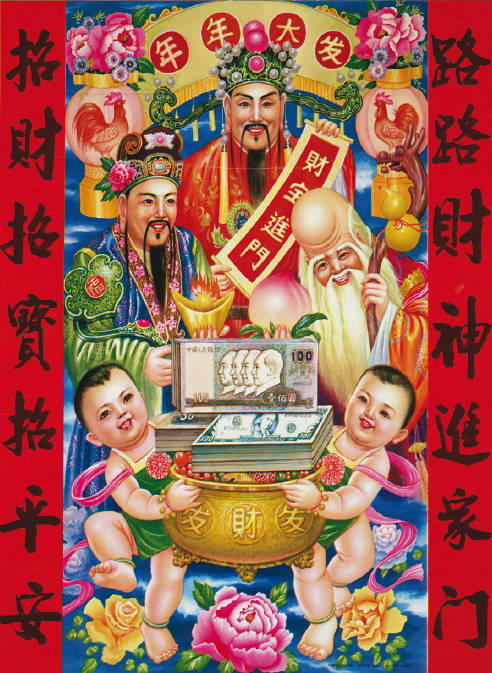China: Abandoning Communism and Maintaining the Party
As the dust settled from the political shakeout following Mao’s death in 1976, Deng Xiaoping (dung shee-yao-ping) emerged as China’s “paramount leader,” committed to ending the periodic upheavals of the Maoist era while fostering political stability and economic growth. Soon previously banned plays, operas, films, and translations of Western classics reappeared, and a “literature of the wounded” exposed the sufferings of the Cultural Revolution. Some 100,000 political prisoners, many of them high-ranking communists, were released and restored to important positions. A party evaluation of Mao severely criticized his mistakes during the Great Leap Forward and the Cultural Revolution, while praising his role as a revolutionary leader.
Even more dramatic were Deng’s economic reforms. In the rural areas, these reforms included a rapid dismantling of the country’s system of collectivized farming and a return to something close to small-scale private agriculture. Impoverished Chinese peasants eagerly embraced these new opportunities and pushed them even further than the government had intended. Industrial reform proceeded more gradually. Managers of state enterprises were given greater authority and encouraged to act like private owners, making many of their own decisions and seeking profits. China opened itself to the world economy and welcomed foreign investment in special enterprise zones along the coast, where foreign capitalists received tax breaks and other inducements. Local governments and private entrepreneurs joined forces in thousands of flourishing “township and village enterprises” that produced food, clothing, building materials, and much more.

The outcome of these reforms was stunning economic growth and a new prosperity for millions. Better diets, lower mortality rates, declining poverty, massive urban construction, and surging exports—all of this accompanied China’s rejoining of the world economy and contributed to a much-improved material life for millions of its citizens. To many observers, China was the emerging economic giant of the twenty-first century. On the other hand, the country’s burgeoning economy also generated massive corruption among Chinese officials, sharp inequalities between the coast and the interior, a huge problem of urban overcrowding, terrible pollution in major cities, and periodic inflation as the state loosened its controls over the economy. Urban vices such as street crime, prostitution, gambling, drug addiction, and a criminal underworld, which had been largely eliminated after 1949, surfaced again in China’s booming cities. Nonetheless, something remarkable had occurred in China: an essentially capitalist economy had been restored, and by none other than the Communist Party itself. Mao’s worst fears had been realized, as China “took the capitalist road.”
Although the party was willing to largely abandon communist economic policies, it was adamantly unwilling to relinquish its political monopoly or to promote democracy at the national level. “Talk about democracy in the abstract,” Deng Xiaoping declared, “will inevitably lead to the unchecked spread of ultra-democracy and anarchism, to the complete disruption of political stability, and to the total failure of our modernization program. . . . China will once again be plunged into chaos, division, retrogression, and darkness.”14 Such attitudes associated democracy with the chaos and uncontrolled mass action of the Cultural Revolution. Thus, when a democracy movement spearheaded by university and secondary school students surfaced in the late 1980s, Deng ordered the brutal crushing of its brazen demonstration in Beijing’s Tiananmen Square before the television cameras of the world.
China entered the new millennium as a rapidly growing economic power with an essentially capitalist economy presided over by an intact and powerful Communist Party. Culturally, some combination of nationalism, consumerism, and a renewed respect for ancient traditions had replaced the collectivist and socialist values of the Maoist era. It was a strange and troubled hybrid.